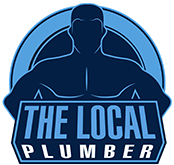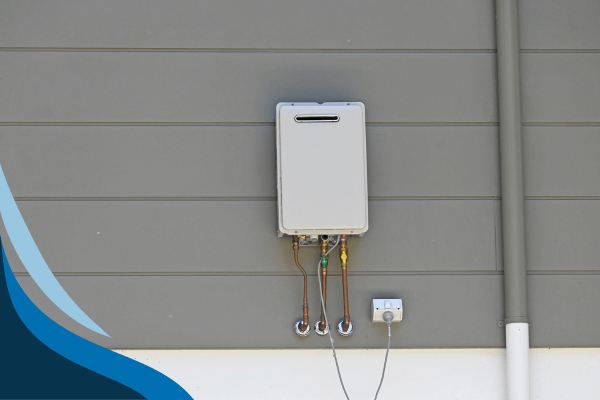Whether you’re replacing an old hot water unit or installing one for the first time, choosing the right hot water system can significantly impact your home’s energy efficiency and the comfort of your daily life. In Melbourne, where our lifestyle and the weather vary widely – as we all are too well accustomed to. Picking a system that aligns with your family’s needs requires careful consideration of various factors. From natural gas to electric, solar to heat pump systems, each system offers its own benefits and limitations. Our hot water system plumbers here at The Local Plumber Melbourne have decided to create the below guide to hopefully help you make an informed choice about the best hot water system for your family needs.
Assessing Your Households Needs
Hot water usage varies significantly from one household to another. Factors such as the number of occupants, frequency of hot water usage (e.g., for baths, dishwashing, or laundry) and your home’s size all influence the type of system that would best suit your needs. For instance, larger families might benefit more from a natural gas due to continuous high demand, whereas smaller households or those looking to save on energy might prefer continuous flow systems.
Home Size and Energy Rating
The size of your home and its energy rating are crucial in determining the capacity and efficiency of the hot water system you should install. Energy ratings, often displayed on appliances, indicate the system’s efficiency and potential running costs. Our plumbers are more than happy to help recommend some higher rated appliances / hot water units if you are uncertain about your current choices. If you are also having issues with your current hot water system and are not sure what has caused this, we have recently released another article on What Has Caused My Hot Water Heater To Burst.
Expert Installation
Choosing a reputable provider to evaluate your home’s specific needs is vital. A professional local and licensed plumber can assess your household’s requirements, advise on the most suitable system, and ensure that it is installed correctly for optimal performance and compliance with local regulations.
Choosing the Right Type of Hot Water System
1. Natural Gas Hot Water Systems
Pros:
- Cost-Effective: Operating on natural gas tends to be cheaper than electricity.
- Quick Heating + Most Reliable: Gas heats water faster than electric systems and can support high volume. They are also extremely reliable, and you will likely have less overall issues compared to the other options.
- Great For Families: Typically installed in medium to large households, where showers and hot water usage is quite regular.
Cons:
- Installation Restrictions: Requires outdoor space or proper indoor ventilation systems.
- Availability: Limited by natural gas supply in your area. You can check if there are Natural Gas Lines in your area.
- Age: Gas hot water systems typically last for approximately 8-12 years. Beyond this age it is likely you will need a replacement unit as you will begin to start encountering issues.
2. Solar Hot Water Systems
Pros:
- Energy Efficiency: Solar systems are highly efficient as they harness renewable energy, which can significantly reduce electricity bills.
- Environmental Impact: Using solar energy helps decrease your carbon footprint.
- Age: Solar hot water systems typically last for approximately 10-25 years.
Cons:
- Higher Initial Cost: The upfront cost for installation and purchase of solar panels and tanks is steep, though offset by long-term savings.
- Dependence on Weather: Efficiency can be compromised on less sunny days, though most systems include an electric or gas booster.
3. Electric Hot Water Systems
Pros:
- Lower Installation Cost: Generally less expensive to install than gas or solar systems.
- Flexibility: Can be installed inside or outside and are available with off-peak electricity options to reduce running costs.
- Great For Apartment Blocks: As most apartment blocks typically do not have natural gas connections for each unit, these units are typically installed in apartments as they are easily wall mountable.
Cons:
- Higher Running Costs: Tends to be more expensive over time, particularly if not using off-peak rates.
- Age: Electric hot water systems typically last for approximately 10-15 years
4. Heat Pump Systems
Pros:
- Highly Efficient: Uses ambient air to heat water, making it more efficient than traditional electric systems.
- Reduced Long-Term Costs: Though upfront costs are higher, operating costs are much lower.
Cons:
- Climate Dependent: Works best in warm environments.
- Noise: Can be noisier than other systems, which might affect installation location decisions.
- Age: Heat pump hot water systems typically last for approximately 10-15 years
What Are Storage & Continuous Systems?
Storage and continuous flow systems are configurations that can be integrated with the four primary types of hot water systems—solar, gas, electric, and heat pump—each offering unique benefits depending on the energy source used.Storage systems heat and store water in an insulated tank for use when needed, ensuring a ready supply of hot water but potentially wasting energy to maintain the temperature. In contrast, continuous flow systems, also known as tankless or instantaneous systems, heat water directly as it flows through the device on demand, which means they do not store hot water and can provide an endless supply.
Storage Tanks:
- Suitable for homes with high water usage.
- Can keep a large volume of water hot, ready for use.
- Slightly more expensive to maintain as they need to keep water hot at all times.
Continuous Flow:
- Heats water on demand, ensuring you never run out.
- More energy-efficient as it only heats water when needed, reducing energy wastage.
- Ideal for smaller households or lower usage scenarios.
Melbourne Hot Water System Installation
Selecting the best hot water system for your Melbourne home involves considering your household’s specific needs, the pros and cons of each system type, and the overall impact on your energy consumption and costs. Solar and heat pump systems offer high efficiency and lower running costs, making them suitable for environmentally conscious households. In contrast, gas and electric systems provide reliability and quicker heating options. Engaging a trusted professional like The Local Plumber Melbourne can provide you with tailored advice, ensuring you choose the most suitable, efficient, and cost-effective system for your home. We proudly service every Melbourne suburb and our team is comprised of 24hr emergency plumbers as well as blocked drain plumbers. Contact us today for more information or to schedule a same day installation!

